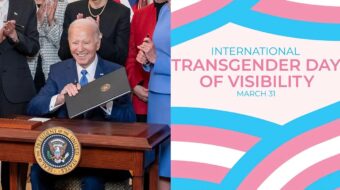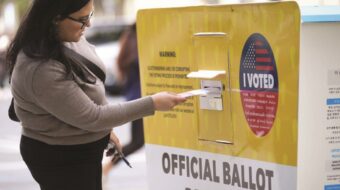Jobs and job creation, White House officials say, remain the top priority of the Obama administration. But with congressional Republicans blocking new stimulus proposals and forcing discussions on budget cuts, the administration has turned to non-legislative measures, which seem mainly focused on encouraging private investment and improving the administration’s relationship with corporate America.
To discuss recent job-creating initiatives, outgoing White House Council of Economic Advisers Chair Austen Goolsbee talked with reporters by conference call June 20.
When asked if the administration agrees with economists and commentators who say growing the economy is more important than inflated fears over the federal budget deficit, Goolsbee hemmed.
“That is a bit of an abstract question. It’s a hypothetical, so I can’t answer that directly,” he said. “The number one goal on the president’s mind in my experience for years not just now has been how do we get the country back to work and how do we get the economy growing. That is our most important priority.”
He continued, “An important component of that is in the long run having the government live within its means. I think we will likely see substantial deficit reduction, but that should not take away from the number one priority, being that we must grow and add jobs.”
Late last week, after meetings with business leaders as part of the White House Council on Jobs and Competitiveness, which is composed primarily of corporate CEOs, labor union leaders and academics, the Council advised the President to take steps to spur business investments.
Following the meeting, President Obama signed an Executive Order creating the SelectUSA initiative, which centralizes the federal government’s promotional tools for foreign direct investment in the Department of Commerce.
The program is designed to help foreign corporations planning to open businesses in the U.S. deal with red tape, to fulfill regulatory requirements quickly, and to gain access to the appropriate agencies needed to comply with local, state, and federal laws.
Commerce Secretary Gary Locke said SelectUSA “will leverage existing resources of the federal government to ramp up promotion of the U.S. as a prime investment destination to create jobs at home and to keep jobs from going overseas.”
To discuss the importance of foreign direct investment to the U.S. economy and the promotion of new job growth, White House economist Austen Goolsbee notes the foreign direct investment grew 49 percent in 2010.
He cited the fact that the U.S. remains a safe place for foreign investors. The U.K. and France are tied for second in global foreign direct investment behind the U.S., which attracts three times as much investment as those two European powers.
The U.S. also outpaces emerging markets such as China, Russia and India by five times or greater.
Goolsbee pointed to a trend in the U.S. economy that may have also played a role in making the U.S. an attractive place for foreign direct investment, which working-class people will find disturbing. Over the past four years, wage growth in the U.S. relative to other countries that attract foreign direct investment has been weaker.
“We’ve got the most productive workers in the world with the highest wages in the world,” Goolsbee explained.
“That said, our competitiveness in the last two to four years has improved quite dramatically as productivity rose a lot in the U.S. relative to other countries, and the relative wage against many of these emerging markets has gone in the U.S.’s favor because those relatively poor countries their incomes have been rising,” he said.
Goolsbee inflected his tone ominously when he announced the latter fact as if to say higher incomes are bad for merging economies.
Simply put, the large growth in foreign direct investment resulted from the fact that the U.S. economy is more productive but wages are not growing as quickly as in other countries.
Foreign direct investment is an important part of the U.S. economy. Close to six million workers are employed by foreign-owned businesses worth some $3.1 trillion, the White House Council of Economic Advisers reported.
Media reports indicate that as whole corporations in the U.S. are holding some $9 trillion in capital that might be invested in job creation. According to insiders that cash is being held to create an impression of shareholder value.
Since entering office, President Obama has signed several major economic stimulus programs: the economic recovery act, expanded small business tax credits for hiring new employees, a second bill that provided aid to states with budget difficulties, and the “auto bailout.” In addition, the President on his own authority initiated two mortgage refinancing programs, a program to buy out troubled small business loans, and a program to boost U.S. exports.
Even the President’s staunchest supporters say all of this hasn’t been enough, as unemployment remains over nine percent and other economic data points to a “double dip” recession.
Last week the Congressional Progressive Caucus, for example, launched a national tour to promote more direct public investment in job creation. The Caucus also rejected calls to slash federal spending, a move, they say, that will spur on a second recession.












Comments